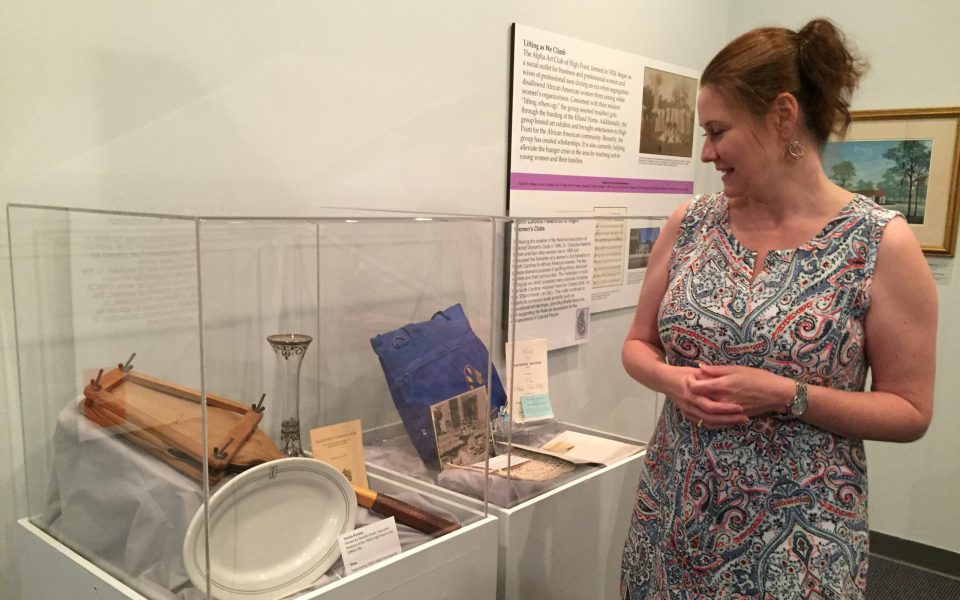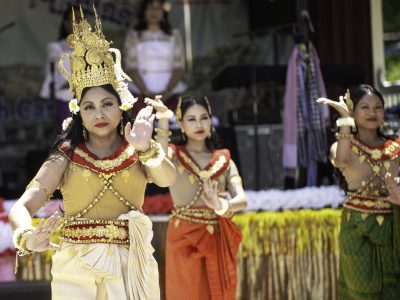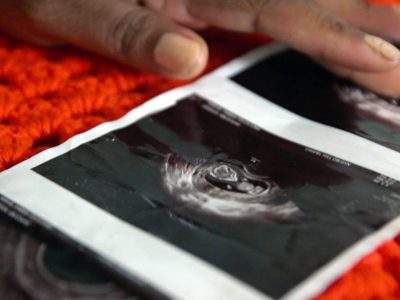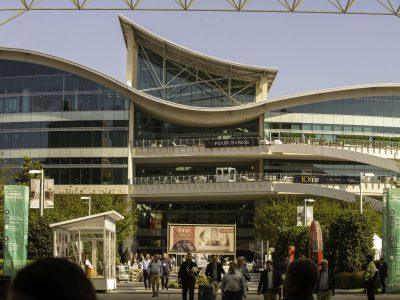Just weeks after thousands of women took to the streets in January earlier this year, commemorating the one-year anniversary of the historic Women’s March from 2017, a smaller, quieter show of women’s empowerment went up at the High Point Museum.
Strength in Numbers: The Lasting Impact of Women’s Organizations in High Point highlights the achievements of four different women’s organizations based in the city over the course of the 20th Century.
“We’ve had the idea to do an exhibit about women for a while,” says Edith Brady, the director of the museum. “It seems the timing was right.”
The exhibit, which went up this spring and runs through Oct. 18, follows the achievements of the High Point Women’s Club, the Junior League of High Point, the YWCA of High Point and the Alpha Art Club. It’s the first exhibit at the museum that’s focused solely on women and comes at a time when women’s organizations are increasingly gaining traction in the wake of Trump’s election.
And while the four historical groups might seem less progressive by today’s standards than, say, the recent #MeToo movement, the groups’ lasting impacts on the city and the culture at large are resoundingly familiar.
“You can go through this exhibit and see echoes of things happening today,” Brady says.
Pictures of women huddled together as they smile decorate the back wall while a tennis racket and handmade doily fill a case in the corner. As she walks through the show which is tucked in the back of the museum, Brady points out the ways in which the different groups helped both white and black women in High Point take on roles in the public sphere.
“It started with women marching for the vote,” Brady says. “It showed women that when they get together and get organized, things can happen.”

©
Spanning from the early 1900s through the 1990s, the exhibit timelines how women began by tackling domestic issues like healthcare and education for children to hosting public discussions about racial equality and eventually running for office. Judy Mendenhall, the city’s first female mayor, and Mary Jarrell who served in the state house from 1983 to 2002, are both listed in the exhibit as former members of the Junior League and the High Point YWCA.
“You can see a clear progression of how women began take on greater roles in the community,” Brady says. “It wasn’t about being conservative or liberal. It was about how their views were important and how they had something to offer.”
The exhibit acts as a kind of microcosm of the country at large, reflecting both the triumphs of society like the women’s suffrage movement, as well as its flaws like segregation. In the center of the exhibit, an agenda from a meeting hosted by the Women’s Goodwill Committee—a group formed in 1963 specifically for the purposes of talking about race relations—show the types of conversations had by white and black women about segregation.
Questions like “To what extent do [negroes’] rights to use [public] facilities affect the extent to which white people use them?” and “Are young negroes ready for the job opportunities available and what is our responsibility in fostering their preparedness?” demonstrate the complex nature of these talks.
“These groups were helping women step out and tackle the most controversial issues of the time,” Brady says. “They had the message that together, women have the ability and responsibility to affect their communities.”
The Alpha Art Club, established in 1924, fully embodies that sentiment. Prohibited from joining white women’s clubs, black women joined together to form the club as a way to organize on their own. Early actions of the club included recruiting musicians to perform in High Point as well as holding community art auctions. Over the years, however, the mission and goal of the group changed according to Burdell Knight, who’s been a member since 1997.
“It started as a recreational club for black women,” says Knight, who is 81 years old. “But over time, we became more active politically.”
Often times the group took on the “grunt work” as Knight likes to say, of putting pressure on local officials to keep up black schools and black sections of hospitals during segregation. Like the female-led Black Lives Matter movement, the club was established and is run by black women who advocate for the betterment of their communities. These days, the group has been pushing for the revitalization of the area around Washington Street, as the city continues to grow.
“It’s lost a lot of its luster and support economically over the years,” says Knight, who grew up in the Washington Street neighborhood. “People of color began to move to other areas and we didn’t support Washington Street. We’re trying to bring it back.”
Knight, like Brady, says the exhibit’s significance lies in its ability to tell a story of the past while informing the present and future.
“These women gave us our footing,” Knight says. “I want our children to see that we’ve been out here fighting and not just sitting and waiting to be given things, and we will have to do it again.”
And January’s just around the corner.
Join the First Amendment Society, a membership that goes directly to funding TCB‘s newsroom.
We believe that reporting can save the world.
The TCB First Amendment Society recognizes the vital role of a free, unfettered press with a bundling of local experiences designed to build community, and unique engagements with our newsroom that will help you understand, and shape, local journalism’s critical role in uplifting the people in our cities.
All revenue goes directly into the newsroom as reporters’ salaries and freelance commissions.





Leave a Reply